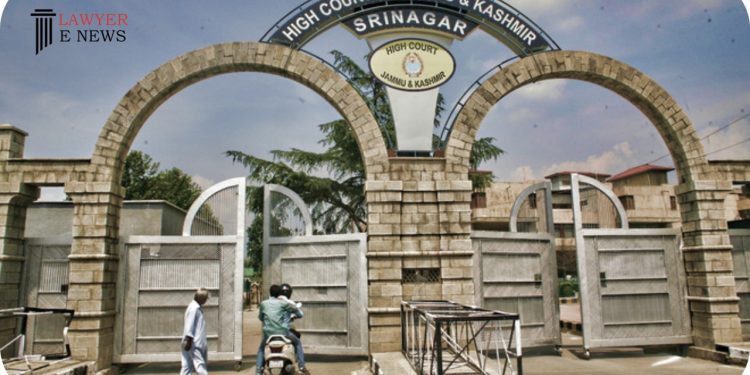Order 23 Rule 3 CPC Violate Compromise Decree Can Be Recalled By Same Court, Separate Suit Barred – J&K&L High Court

On Wednesday, the Jammu and Kashmir and Ladakh High Court made the observation that a compromise deed is essentially a contract between the parties superimposed by the court’s decree, and that the only way to avoid such a decree is to go before the same court and prove that the compromise upon which the decree is based is unlawful.
A bench led by Justice Sanjeev Kumar made the observation after hearing a petition in which the petitioner sought the issuance of a writ of certiorari to overturn a judgement and order made by the Court of Munsiff (Additional Special Mobile Magistrate), Beerwah. The petitioner had invoked the extraordinary writ jurisdiction under Article 226 of the Indian Constitution. The petitioner also asked for the execution petition that was submitted to the trial court to carry out the contested judgement and decree to be quashed.
The parties entered into a compromise, which was reduced in writing in terms of a deed executed on October 25, 2019, while a civil suit for a permanent prohibitory injunction filed by the respondents against the petitioner was pending adjudication in the trial Court. Based on this compromise deed and after recording statements from both parties, the trial Court had passed a compromise decree dated November 13, 2019, according to the court’s review of the record. All parties, including the petitioner in this case, acknowledged the ruling.
The record also showed that the petitioner did not approach the trial Court until October 2021, almost three years after the decree had been issued, and only then did she file an application pursuant to Order 23 Rule 3 of the Code of Civil Procedure, asking for the recall of the compromise deed dated 13.11.2019 on the grounds that the respondents had coerced the petitioner into signing it. After considering the request, the trial court dismissed it in an order dated July 20, 2022. The writ petition questions both this order made by the trial court as well as the ongoing execution proceedings. The petitioner also asked for the compromise decree from November 13, 2019, to be quashed.
In ruling on the matter, Justice Kumar noted that the current petition is not viable at the very outset since it is not permissible to use the extraordinary writ power granted to this Court by Article 226 of the Indian Constitution to contest the decisions made by the Civil Courts. In making this declaration, the bench firmly endorsed the position expressed in a Three-Judge Bench decision of the Hon. Supreme Court in Radhey Shyam and others v. Chhabi Nath and others (2015). An agreement or compromise that is void or voidable under the Contract Act shall not be deemed to be “lawful” within the meaning of Rule 3, the bench stated when discussing the law applicable to the current situation. The court emphasised that a separate lawsuit to challenge a compromise decree is categorically barred by Rule 3A of Order 23 CPC and that a compromise decree that has been tainted by fraud, coercion, misrepresentation, undue influence, or mistake may be recalled by the same court under the proviso to Rule 3 of Order 23.
To support the aforementioned legal position, the bench thought it was important to note the Supreme Court’s observations in R. Jankiammal v. S. K. Kumarasamy (2021),
“According to a combined reading of Sections 10, 13, and 14 of the Contract Act, consent obtained through coercion, undue influence, fraud, misrepresentation, or mistake is not free consent, and the contract may be voidable at the discretion of the party whose consent was influenced by coercion, fraud, or misrepresentation. As stated in the Explanation to Rule 3 of Order 23, an agreement that is void or voidable under the Indian Contract Act shall not be deemed to be legitimate.
In response to the respondent’s argument that the petitioner had to file a new lawsuit in order to challenge the compromise decree on the grounds of coercion, the bench noted that the compromise deed is effectively a contract between the parties that the court’s decree has superimposed. Only by appealing to the same Court and proving to it that the compromise upon which the decree was based was invalid, rendering the respondent’s argument insupportable, can such a decree be averted.
Applying the aforementioned law, the bench noted that while it is true that the impugned judgement and decree are not appealable and that Order-23 Rule-3 of the Code of Civil Procedure provides a remedy for recalling a compromise decree obtained through fraud, coercion, or undue influence, the writ petitioner has failed to establish a basis for doing so, as was correctly noted by the trial Court.
The petition was consequently dismissed by the bench.
Abdul Majeed Ganai
Vs
Abdul Rahim Bhat & Another






